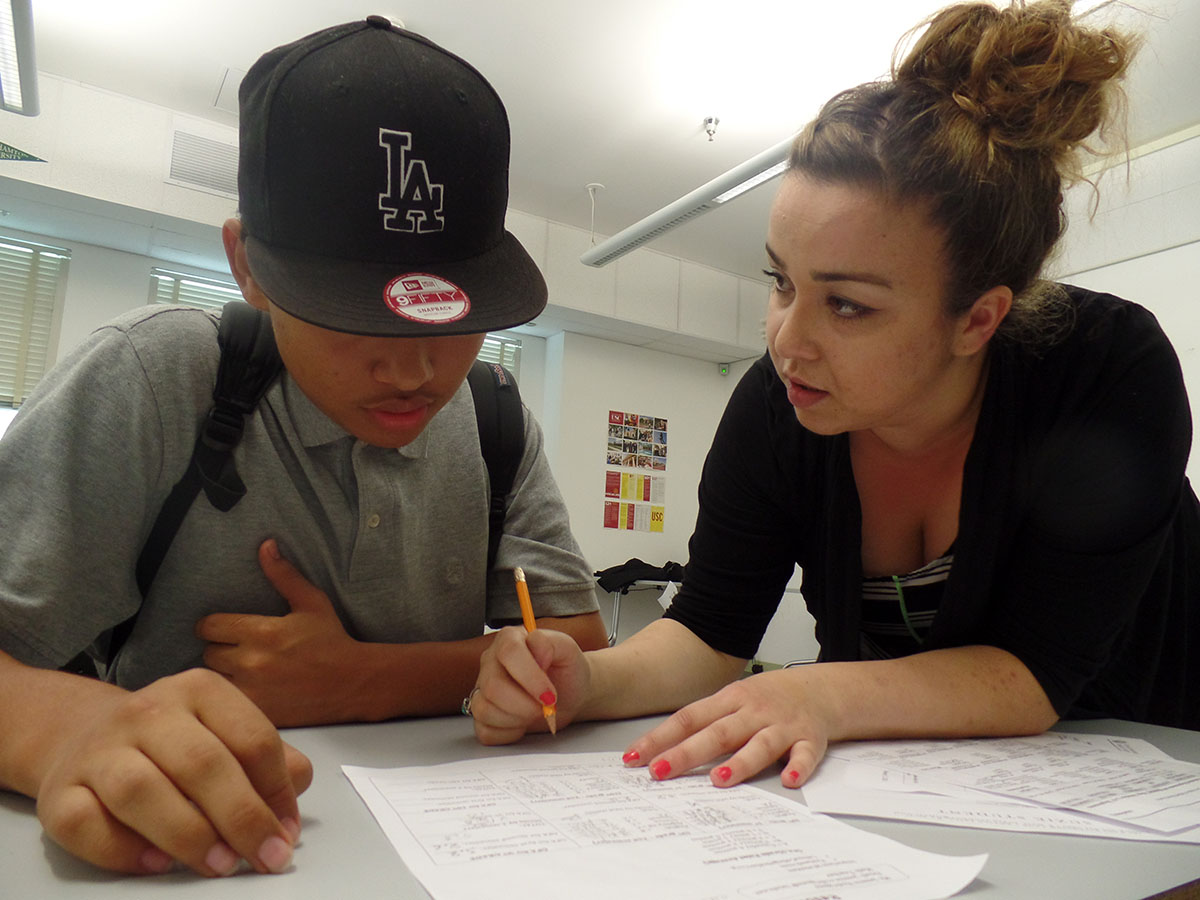Thousands of teachers could be added to the state’s workforce next school year because of a California Commission on Teacher Credentialing decision to offer teacher candidates who almost pass their teaching performance assessment a chance to earn a preliminary credential without retaking the test.
Beginning early next year, teacher candidates who come within -1.0 standard error of measurement — generally about two or three points — of passing either the California Teaching Performance Assessment or the edTPA, can earn their credential if their preparation program determines they are prepared, commissioners voted on Friday. This decision will not impact teacher candidates who take the Fresno Assessment of Student Teachers.
“To be clear, the recommendation is not proposing lowering the standard, rather it would expand the ways in which candidates could demonstrate their readiness to begin teaching,” said Amy Reising, chief deputy director of the commission on Friday.
Performance assessments are required to earn a teaching credential in California. Candidates demonstrate their competence by submitting evidence of their instructional practice through video clips and written reflections on their practice. Student candidates who select the CalTPA must complete two assessments or cycles.
“The secondary passing standard would be targeted toward candidates who fell just short of the current adopted passing standards set for these assessments, but may have demonstrated classroom readiness through other measures at the local level and within their programs,” Reising said.
Preparation programs can recommend eligible candidates for a preliminary credential by documenting that they have demonstrated proficiency in each of the seven domains in the state Teaching Performance Expectations, according to the commission.

The decision came after commissioners reviewed a report at their October meeting that revealed that a majority of teacher candidates who failed performance assessments over the last five years were extremely close to passing. If the new standard had been used over the last two years, 2,000 of the 2,731 teacher candidates who failed cycle one of the CalTPA , 953 candidates of the 1,152 who didn’t pass cycle 2 of the CalTPA, and 360 of the 1,124 candidates who failed the edTPA would have passed the assessment and earned a credential, according to the commission.
Teacher candidates whose score is too low on their performance assessment to take advantage of the secondary passing standard can work with their teacher preparation program to revise or resubmit their work, said Anita Fitzhugh, spokesperson for the commission. The assessment can be submitted at any time at no cost because the state waived the fees. It takes about three weeks to receive a score.
Commission staff also plan to work with teacher preparation programs to develop a formal process to identify and support programs with low teacher performance assessment passing rates, according to staff reports.
An enduring teacher shortage has put pressure on the state to remove hurdles to earning a teaching credential. In July 2021, legislation gave teacher candidates the option to take approved coursework instead of the California Basic Education Skills Test, or CBEST, or the California Subject Examinations for Teachers, or CSET.
The commission’s new plan isn’t without controversy. One concern from speakers at Friday’s meeting was that the decision would undermine Senate Bill 488, which requires the commission to replace the Reading Instruction Competence Assessment with a teaching performance assessment.
Commission staff said that the secondary passing standard for the two performance assessments will not impact the literacy performance assessment that is under development and is expected to be piloted in the spring and field-tested the following school year.
“A separate standard-setting study will be conducted in Spring 2025 to recommend passing standards for the literacy performance assessment,” Reising said in an email on Monday.
According to commission staff, a work group made up of teachers, administrators, mentor teachers and university faculty will convene in July to study and make recommendations on how to improve all three of the state’s performance assessments. It will consider best practices, the challenges of implementation and how to ensure reliable scoring.
More than 50 people submitted comments to the commission on the state’s performance assessments. Most urged commissioners to either eliminate or revamp the performance assessments.
“TPAs are vastly subjective, depending on who is scoring the assessment; rubric-based explanations and feedback upon results are very vague,” said Aly Gerdes, a teacher at Evergreen Elementary School District in San Jose. “I truthfully do not see the inherent value in CalTPA and believe it needs to be abolished or replaced with something that is worthwhile and will do more than add an extra stressor to teacher-candidates’ lives.”
Many speakers and letter writers said the high-stakes assessment is detrimental to teacher candidates.
“On a personal level, the stress and pressure associated with the TPA can be overwhelming,” wrote teacher Cheena Molsen.
“The weight of high-stakes evaluations can adversely affect the well-being and morale of educators, potentially diminishing their effectiveness in the classroom. The toll it takes on the personal lives of teachers should not be underestimated, as the pursuit of excellence in education should not come at the cost of educators’ mental and emotional well-being.”
